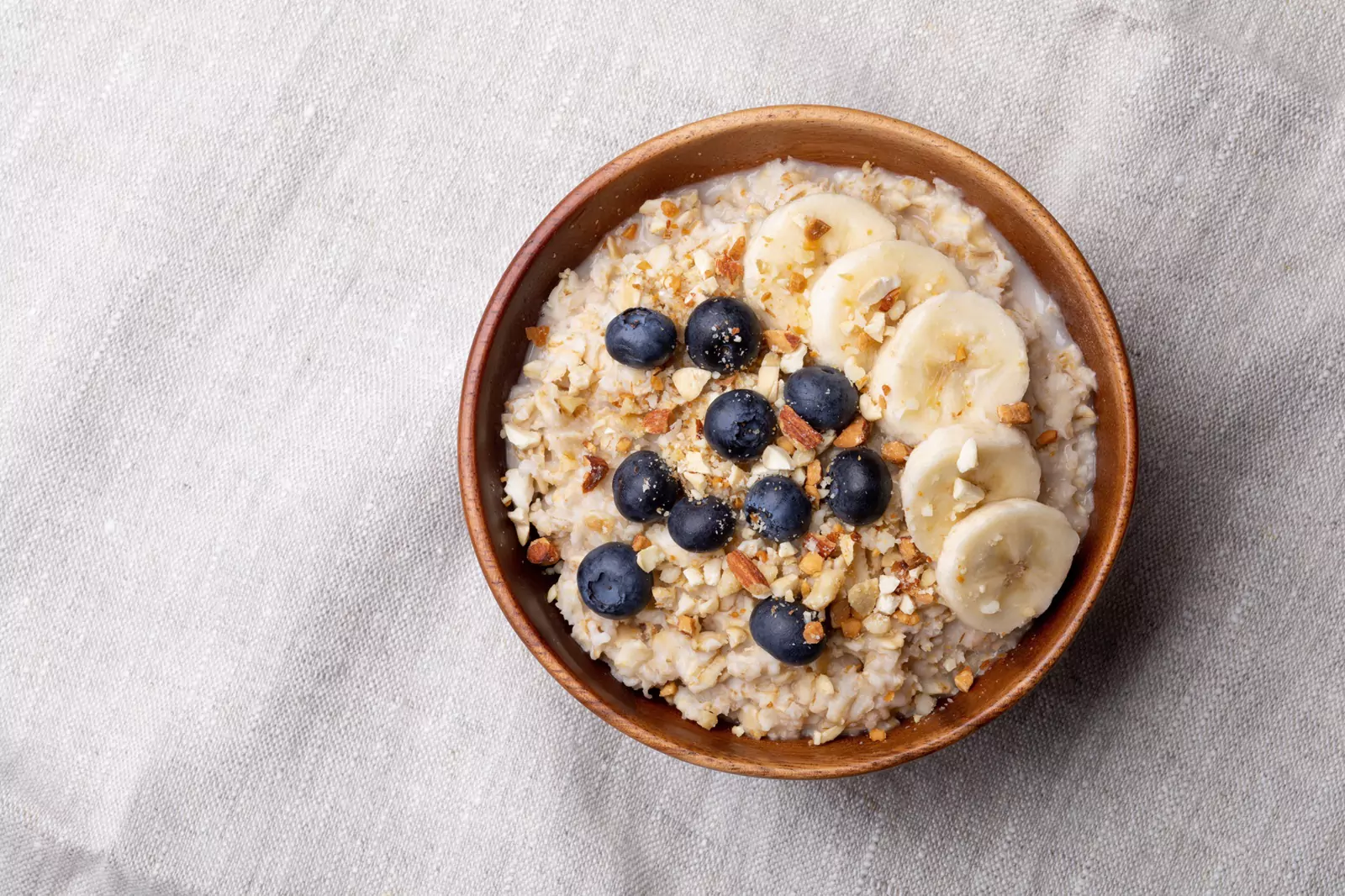
UP TO 40% OFF SITEWIDE






10 Pounds Weight Loss in One Week: Is it Okay?


Table of Contents
- Key Takeaways
- Understanding Weight Loss
- The Intricate Process of Weight Loss
- Weight Loss in One Week: The Reality
- The Hidden Dangers of Rapid Weight Loss
- Dangers of Extreme Dieting
- Weight Loss in One Week Exercise
- The Importance of Safe Exercise Routines for Weight Loss
- Tips for Achieving Success in Your Weight Loss Exercise Routine
- How Much Weight Loss in One Week is Okay?
- Guidelines for Safe Weight Loss
- A Word From the Experts
- Conclusion
- Frequently Asked Questions
- Can I lose 10 pounds in one week?
- How much weight loss in one week is okay?
- What are the risks of rapid weight loss?
- What exercises are good for weight loss?
- Is it better to lose weight gradually?
- About The Author
If you're reading this, chances are you're curious about weight loss in one week. It's a tempting thought, isn't it? The prospect of shedding those extra pounds in a flash, transforming your physique and perhaps gaining a fresh surge of self-confidence. In a world where instant gratification is becoming the norm the allure of rapid weight loss is not surprising.
But just like any expedited process, it begs several crucial questions: How much weight loss within a week is too much? Is it beneficial or does it pose potential harm? Is it even feasible? Is the whole idea of swift weight reduction a myth or reality? And most importantly, is it safe? These are valid questions and, in this article, our aim is to unravel the truth, backed by scientific facts and expert advice.
It's a complex topic, filled with a multitude of opinions and theories but fear not! We're here to sift through the information overload and present you with a concise, yet comprehensive understanding of this subject.
Key Takeaways
Before we delve into the nuts and bolts of this topic, it's essential to remember that each individual is unique. We all have different body types, metabolisms, genetic makeup, lifestyles, dietary habits and fitness levels. What might work wonders for one person could potentially be ineffective or even detrimental for another.
Thus, while we navigate through this intricate journey of understanding weight loss, it's crucial to keep in mind that a 'one-size-fits-all' approach may not necessarily apply. Instead, we should aim for an understanding that helps us make informed decisions, keeping our unique conditions and needs at the forefront.
So, are you ready to embark on this exploration of weight loss realities? Whether you're just curious or earnestly seeking guidance for your personal weight loss journey, we're glad to have you on board. Let's take this journey of discovery and understanding together, shall we?
Understanding Weight Loss
When we talk about "weight loss", what does it truly mean? We need to decipher the concept before we dive deeper. Weight loss, in its most straightforward description, is the reduction of an individual's total body mass. This reduction can be the result of losing body fluid, shedding body fat or losing lean mass which includes muscle, bone mineral deposits and other non-fat tissues.
However, it's important to remember that not all weight loss is healthy or beneficial. For instance, loss of muscle mass or significant fluid loss can lead to adverse health effects. In contrast the reduction of excess body fat often leads to improvements in overall health, particularly if the individual was overweight or obese to start with.
Moreover, weight loss isn't always a voluntary process. Unintended weight loss could be a symptom of an underlying health issue such as an overactive thyroid, diabetes, depression or even certain types of cancer. In these cases the weight loss is generally accompanied by other symptoms and is often cause for medical concern.
That's why when we speak of weight loss in a health and fitness context, we usually refer to the intentional loss of body fat in an effort to improve fitness and health. It's an endeavor that requires commitment, knowledge and often, a change in lifestyle.
The Intricate Process of Weight Loss
The common rhetoric around weight loss is "calories in, calories out". Essentially, this means that to lose weight, you need to burn more calories than you consume. While this is fundamentally true the process is far more complex than a simple arithmetic equation. Firstly the human body needs a certain number of calories to function each day.
This is called your basal metabolic rate (BMR) and it's the number of calories you would burn if you were to do nothing but rest for 24 hours. Your BMR accounts for about 60-75% of your total daily calorie expenditure. Factors like your age, sex, weight, muscle mass and genetics can influence your BMR. Apart from your BMR the other major contributor to your calorie expenditure is your physical activity.
The more active you are the more calories you burn. This includes not only planned exercise but also routine tasks like walking, house chores and even fidgeting. On the other side of the equation, we have calorie intake, i.e. the calories we consume from the foods and drinks we ingest. Again the types of food you eat can have a significant impact on your weight loss. Foods rich in protein and fiber can make you feel fuller thereby reducing your overall calorie intake.
So the process of weight loss involves creating a caloric deficit which is when you consume fewer calories than you burn. This can be achieved by increasing physical activity (burning more calories) or reducing food intake (consuming fewer calories) or ideally, a combination of both. However, creating a calorie deficit isn't the end of the story.
For a start, drastic calorie reductions can lead to muscle loss and can slow down your metabolism, making it harder for you to lose weight. That's why it's often recommended to aim for a modest calorie deficit to ensure steady and sustainable weight loss. Furthermore, not all calories are created equal.
The source of your calories matters as foods have different effects on feelings of fullness the hormones that regulate weight and the number of calories burned during digestion. In essence, understanding weight loss is not just about understanding how to create a calorie deficit. It's also about learning how to do it in a way that supports your health, suits your lifestyle and can be sustained in the long term. It's a journey that is as complex as it is personal.
Weight Loss in One Week: The Reality
When it comes to weight loss, especially losing a significant amount like ten pounds within just seven days, it's crucial to consider the reality of such a drastic change. While the idea is tempting and full of immediate gratification the process's potential risks and ramifications are often underrepresented or ignored entirely.
The fast-paced world we live in often encourages rapid results, even when it comes to personal health and fitness.
The prevalent societal pressure to conform to certain beauty standards and achieve the 'perfect body' sometimes clouds our judgement, leading us down the path of potentially harmful quick fixes. The "lose weight fast" ideology is pervasive in advertising social media and the fitness industry, creating unrealistic expectations and driving individuals to seek dramatic weight loss in a single week.
The Hidden Dangers of Rapid Weight Loss
When you think about rapid weight loss, what comes to your mind? Perhaps it's the promise of fitting into an old pair of jeans or looking great for an upcoming event. But while the allure of shedding pounds quickly is undoubtedly compelling, it is fraught with risks that could compromise your health.
You might be asking yourself, "How much damage could I really do in a week?" Well, unfortunately the answer is quite a bit. Rapid weight loss, especially when achieved through extreme dieting or excessive exercise can have a significant negative impact on your body's crucial systems. It can disrupt your metabolic rate, dehydrate your body, deplete essential nutrients and even induce a state of shock in severe cases.
One of the immediate dangers of rapid weight loss is dehydration. Often, when individuals lose weight very quickly, it's not fat they're losing but water. This sudden drop in water weight can lead to severe dehydration which, in extreme cases can cause fainting, kidney damage and other serious health problems. Another risk is nutrient deficiency.
To lose weight rapidly, people often resort to very low-calorie diets that lack essential nutrients. This can lead to deficiencies, affecting everything from your energy levels and cognitive function to your skin, hair and nails.
Moreover these deficiencies can weaken the immune system, making the body more susceptible to illness and infection. Rapid weight loss can also lead to muscle loss. When the body doesn't get enough calories, it needs to find other energy sources. As a result, it might start breaking down muscle proteins. Not only does this decrease strength and stamina but it also slows down metabolism, making it harder to maintain weight loss in the long run.
Moreover the extreme methods often used to achieve rapid weight loss can negatively affect your mental health. Fad diets and the deprivation they involve can lead to unhealthy relationships with food, eating disorders and a cycle of yo-yo dieting. Plus the stress of maintaining such a lifestyle can increase anxiety levels and potentially lead to depression.
Therefore, when it comes to weight loss, it's not just about the "how," but more importantly the "should you." The desire to see immediate results can overshadow the significant risks involved in rapid weight loss. However, it's essential to understand these potential dangers before embarking on any weight loss journey, especially one that promises quick results.
Dangers of Extreme Dieting
When the aim becomes to shed weight rapidly, people often resort to extreme dieting methods. However, it's crucial to understand that such a strategy can have serious implications on both your physical and mental well-being. Extreme dieting, often characterized by severely limiting caloric intake or resorting to mono-diets (consuming only one type of food) can initially lead to rapid weight loss.
Yet, this form of dietary restriction is not sustainable and neither are the results. The body, in reaction to this severe calorie deficit, will slow down its metabolic rate to conserve energy, leading to a frustrating plateau in weight loss or even weight gain when a normal diet is resumed. This is often referred to as the dreaded "yo-yo" effect. Beyond the "yo-yo" effect, extreme dieting can lead to malnutrition.
By drastically reducing calorie intake, you are likely depriving your body of vital nutrients it needs to function properly. This lack of essential vitamins, minerals and other nutrients can lead to symptoms such as fatigue, dizziness, hair loss, weakened immune system and severe mood swings. These symptoms not only affect your physical health but your mental health as well, leading to issues like depression and anxiety disorders. Another significant danger of extreme dieting is the loss of muscle mass. Our bodies need a certain amount of calories and protein to maintain our muscle mass.
When you restrict calories to a large extent the body will start breaking down muscle tissue to meet its energy needs. This loss of muscle mass will, in turn, further reduce your metabolism and make weight management even more challenging in the future. Moreover, other health issues such as gallstones, heart problems, electrolyte imbalances and weakened bones can arise from severe dietary restrictions.
These health issues can have long-term consequences some of which can be life-threatening. However, all hope is not lost. There is a safer, healthier and more sustainable way to lose weight. It involves incorporating regular exercises along with a balanced, nutritious diet. By doing so, you can ensure that you lose weight at a moderate and safe pace thereby avoiding the many dangerous pitfalls of extreme dieting. This strategy promotes a healthier lifestyle that is much more likely to lead to long-term success.
Weight Loss in One Week Exercise
Exercise is a vital component of any weight loss plan. However, understanding how to correctly utilize exercise within a week can be the difference between success and struggle.
The Importance of Safe Exercise Routines for Weight Loss
Exercise, in conjunction with a balanced diet can indeed foster healthy weight loss. However, not all exercise routines are created equal and some may do more harm than good, particularly if done excessively or improperly. Moderation is key in ensuring both the efficacy and safety of your weight loss journey. Before you start exercising, it's crucial to know your body’s limitations. Overexertion can lead to injuries which can hamper your progress.
The goal is to start slowly and gradually increase the intensity as your body gets more comfortable and your fitness level improves. An excellent way to start is with low-impact exercises such as walking, swimming or cycling which put less stress on your joints. These exercises are easy to fit into your daily routine and can make a significant difference in your energy expenditure.
As you grow more comfortable, consider incorporating strength training into your routine at least two days a week. Building muscle helps to boost your metabolism which increases the number of calories you burn even while at rest. Variety in your workouts is also essential to avoid boredom and it can help you engage different muscle groups.
For example, you might alternate between days of cardio exercises, like running or cycling and strength training exercises such as weight lifting or bodyweight exercises. Also, consider incorporating flexibility and balance exercises into your regimen.
Activities like yoga or Pilates can improve your strength, flexibility and balance while also helping to reduce stress. Lastly, it's crucial to listen to your body. If you feel pain or discomfort during exercise, stop and rest. Remember, you're aiming for long-term results so avoid pushing yourself to the point of injury.
The potential of exercise in weight loss journey
Tips for Achieving Success in Your Weight Loss Exercise Routine
- Aim for Consistency: Regular exercise is more beneficial than sporadic intense workouts. Try to schedule your workouts into your day, just like any other important activity. It may take a few weeks to form the habit but consistency is key.
- Mix up Your Exercises: Variety not only helps keep boredom at bay but also ensures you're working different muscle groups. Include a mix of cardio, strength training and flexibility exercises.
- Make it Enjoyable: You're more likely to stick to a workout routine that you enjoy. Whether that means working out with a friend, listening to your favorite podcast while walking or taking a dance class is entirely up to you.
- Set Realistic Goals: While it's good to challenge yourself, it's also essential to be realistic. Remember, you're looking for steady, gradual progress—not overnight miracles.
- Track Your Progress: Keeping a record of your workouts can help you see how far you've come. It's not just about the weight you lose but also the fitness level you gain.
- Celebrate Your Successes: Every bit of progress is worth celebrating. Remember, even small victories can add up to big results over time.
The path to weight loss in one week through exercise is a journey, not a sprint. Take it one step at a time, be patient with yourself and remember to celebrate the progress you make along the way. With the right approach, you can reach your weight loss goals while also developing healthier habits that will benefit you for a lifetime.
How Much Weight Loss in One Week is Okay?
In the world of weight loss, one question often asked is: "How much weight loss in one week is okay?" It's a valid concern as striking the right balance between effective and healthy weight loss can be challenging.
Guidelines for Safe Weight Loss
When it comes to weight loss the common rule of thumb offered by health professionals is to aim for losing between 1-2 pounds per week. You might be wondering why this number? The reasoning is based on the understanding that to lose one pound of fat, you need to create a calorie deficit of about 3,500 calories.
Over a week, a deficit of 500 to 1,000 calories per day achieves the 1-2 pounds loss which can be reached by a combination of healthier eating and regular physical activity. Beyond the math, this rate of weight loss is also favored because it promotes the long-term adoption of sustainable healthier habits. It's not just about losing the weight but also about helping you learn how to keep it off which is equally, if not more, important.
You're not only working towards your weight loss goal but also equipping yourself with the skills and habits you need to maintain your results over time. Moreover, slower weight loss allows for the preservation of lean muscle mass while primarily losing from fat stores which isn't the case with drastic calorie restriction and excessive weight loss.
Rapid weight loss often leads to a decrease in muscle, water and only a fraction from fat which is not ideal for your body composition or metabolism. Now, you might question, what about those claiming to have lost more than that in a week? Well, during the first few weeks of any diet, a rapid drop is normal. It's usually because the body is getting rid of excess water weight and not actual fat. As you continue the pace of weight loss will likely slow down.
A Word From the Experts
It's important to remember that everyone's body is different and what might work for one person may not work for another. Always seek professional advice before starting any weight loss program. Dietitians, nutritionists and other health professionals can provide personalized advice based on your current health status, lifestyle and weight loss goals.
They can help ensure that your weight loss journey is safe, effective and tailored to your needs. Remember, while losing weight can provide health benefits if you're overweight or obese the ultimate goal should not be centered around a number on the scale. Health isn't just about weight; it's about having a balanced diet, regular physical activity, adequate sleep and positive mental health.
Conclusion
To wrap things up, when answering the question, "How much weight loss in one week is okay?", consider the approach that promotes your overall well-being. While losing 10 pounds in a week might sound enticing, it might be too much and potentially harmful. Aim instead for steady, gradual and sustainable weight loss.
If you’re aiming for quick weight loss, having the right support can make all the difference. Our Weight Loss Formula is designed to boost energy levels while aiding in healthy weight management. For those who swear by natural remedies, Apple Cider Vinegar is a time-tested option for weight management. Additionally, Moringa Capsules offer a powerful way to support your metabolism and overall weight loss journey. Explore these products to enhance your results safely and effectively!
It might take longer but remember, weight loss is a journey, not a race. The important thing is to make continuous progress in a way that supports your physical and mental health.
Above all, remember that your health is more important than a number on the scale. You're not just losing weight; you're gaining health, energy and confidence. So, embark on this journey with a commitment to treat your body with respect and kindness. And when in doubt, always consult the experts.
Frequently Asked Questions
Can I lose 10 pounds in one week?
While it might be possible, it's generally not recommended due to potential health risks.
How much weight loss in one week is okay?
Health experts typically recommend a weight loss of 1-2 pounds per week.
What are the risks of rapid weight loss?
Rapid weight loss can lead to malnutrition, muscle mass loss, gallstones and other health issues.
What exercises are good for weight loss?
A combination of cardio, strength training and flexibility exercises is often recommended for weight loss.
Is it better to lose weight gradually?
Yes, gradual weight loss is generally considered safer and more sustainable in the long run. Now that you've learned about the topic, it's time to take the next step. Always remember, health is wealth!
About The Author
Meet Dr. Ahmet Ergin a highly skilled and dedicated endocrinologist with a passion for diabetes care. Dr. Ergin earned his medical degree with honors from Marmara University in Istanbul. He completed internal medicine residency and endocrinology fellowship at Cleveland Clinic.
Dr. Ergin is board-certified in Internal Medicine, Endocrinology, Diabetes and Metabolism due to his vast medical expertise. He's a certified diabetes educator, author of "The Ultimate Diabetes Book," and founder of "the SugarMD YouTube channel."
Dr. Ergin offers exceptional diabetes care to his patients in Port Saint Lucie, FL, helping them manage effectively. Disclaimer: These statements have not been evaluated by the Food and Drug Administration. Information on this website isn’t intended to treat, cure or prevent any disease. Discuss with your doctor and do not self-treat.
Written By Dr. Ahmet Ergin
466 total articles
Meet Dr. Ahmet Ergin, a highly skilled and dedicated endocrinologist with a passion for diabetes care. Dr. Ergin earned his medical degree with honors from Marmara University in Istanbul. He completed internal medicine residency and endocrinology fellowship at Cleveland Clinic. Dr. Ergin is board-certified in Internal Medicine, Endocrinology, Diabetes, and Metabolism due to his vast medical expertise. He's a certified diabetes educator, author of “The Ultimate Diabetes Book,” and founder of “the SugarMD YouTube channel.” Dr. Ergin offers exceptional diabetes care to his patients in Port Saint Lucie, FL, helping them manage effectively. For a closer look into his insights and experiences, connect with Dr. Ahmet Ergin on LinkedIn, Instagram, and YouTube.”
Disclaimer: These statements have not been evaluated by the Food and Drug Administration. Information on this website isn't intended to treat, cure or prevent any disease. Discuss with your doctor and do not self-treat.
Products















